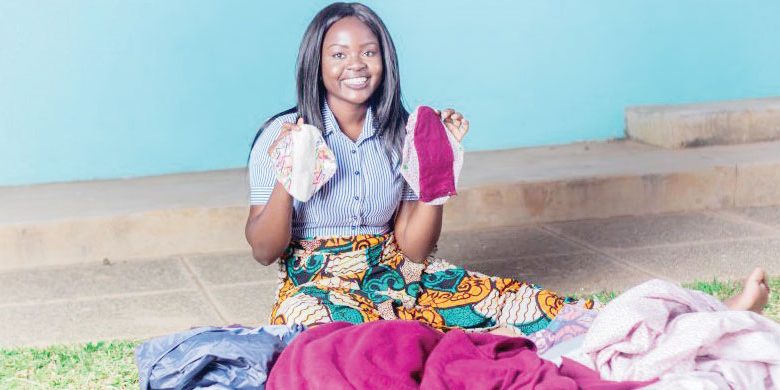Millennium Challenge Corporation (MCC)’s $350.7 million, five-year compact in Malawi—which ended in September 2018— was an investment to boost the country’s economic growth by strengthening the power sector, specifically addressing infrastructure, policy reform, and environmental management. Women play a key role in managing natural and community resources, so addressing gender equality was necessary to ensure the compact’s lasting impact. The compact included measures to this effect, such as promoting job opportunities for women on the construction sites and policy reforms to boost women’s participation in the energy sector.
Grace Ghambi’s Story
Grace Ghambi shows us how efforts to empower women economically can have far-reaching benefits. Long before receiving an MCC-sponsored scholarship to study electrical engineering at the University of Malawi, Grace was already determined not only to pursue her interest in STEM (science, technology, engineering, and math), but also to inspire other young people—especially girls—in her country to pursue their dreams. Over her holidays from university, she found herself mentoring young girls in her community about their futures.
Today Grace leads a youth organisation named Focus Action Results (FAR), through which she has reached more than 70,000 people. FAR works on a range of activities, from training women in skills such as entrepreneurship and making re-usable sanitary pads, to bringing more girls to school, to helping orphanages implement good hygiene in the face of Covid-19.
“The project aims at building passion in young people,” Grace said. “I believe through this platform young people can share ideas, innovate, receive mentorship and get resources that will help them take leadership roles in addressing the most urgent issues facing the world.”
Grace believes the opportunities and scholarships she received through MCC-funded projects boosted her confidence and helped her to “start thinking outside the box.” She also credits the personal interest that MCC’s CEO Sean Cairncross has taken by keeping up with her organisation’s efforts through emails. “[It] has motivated me to keep on going even when I feel like giving up.”
Empowering Women Across Malawi
Grace currently works for Malawi’s electricity utility—the Electricity Supply Corporation of Malawi (Escom)—as part of an MCC-funded project to increase women’s participation in the energy sector. Based on her experience, she believes MCC’s work in Malawi will help women and girls across her country.
“MCC’s agenda to empower women economically will help to enlighten women and girls in Malawi,” she said. “I believe that by singling girls and women out, using gender-specific language, and addressing their needs, we can help even more girls and women defend their rights, live full lives, and thrive in their community.
“With this approach, I see many women playing leading roles in their respective societies, hence contributing to the growth of the economy in Malawi.”
MCC’s Second Malawi Compact
In December 2018, Malawi was selected as eligible to develop a second compact with MCC. The compact is in development and is being designed to transform and diversify the economy and reduce poverty—particularly through land reform, agriculture and agribusiness, and bringing down the cost of road transportation. As with every MCC compact, it will integrate gender issues throughout, from the development and design of programs, to project implementation, monitoring of program results, and evaluation of program impacts.
Grace is excited about the potential benefits of this new compact for women and youth in her country.
“I believe this will be a great opportunity for women and young people to contribute to economic growth,” she said. “I believe that this project will help women to become economically independent. In return, this will reduce problems women and young people face, such as gender-based violence and malnutrition.”
Why MCC Focuses on Women
When women have higher incomes and are economically empowered to decide how that income is spent, everything changes for the better. MCC’s work in Malawi is just one example of how our investment model consistently works with partner countries to unlock the economic potential of women and break down financial, legal, and cultural barriers that prevent women from fully engaging in their countries’ economies. This type of work to economically empower women that is embedded within MCC’s programs demonstrates the agency’s support for the goals of the Women’s Global Development and Prosperity initiative (W-GDP). MCC will continue to create opportunities for women as part of its mission to reduce global poverty.
